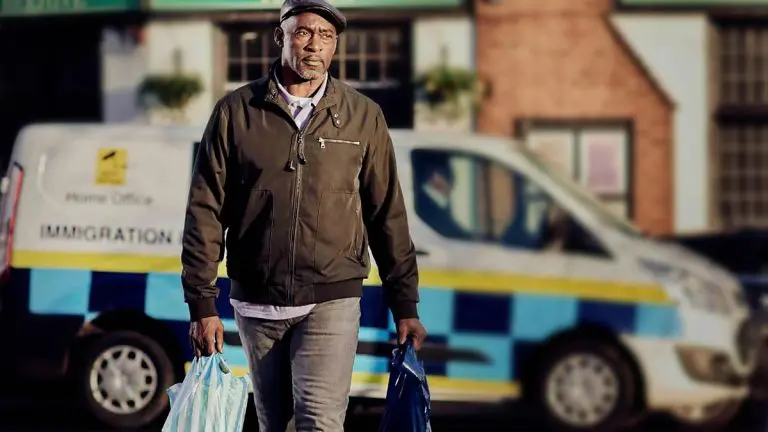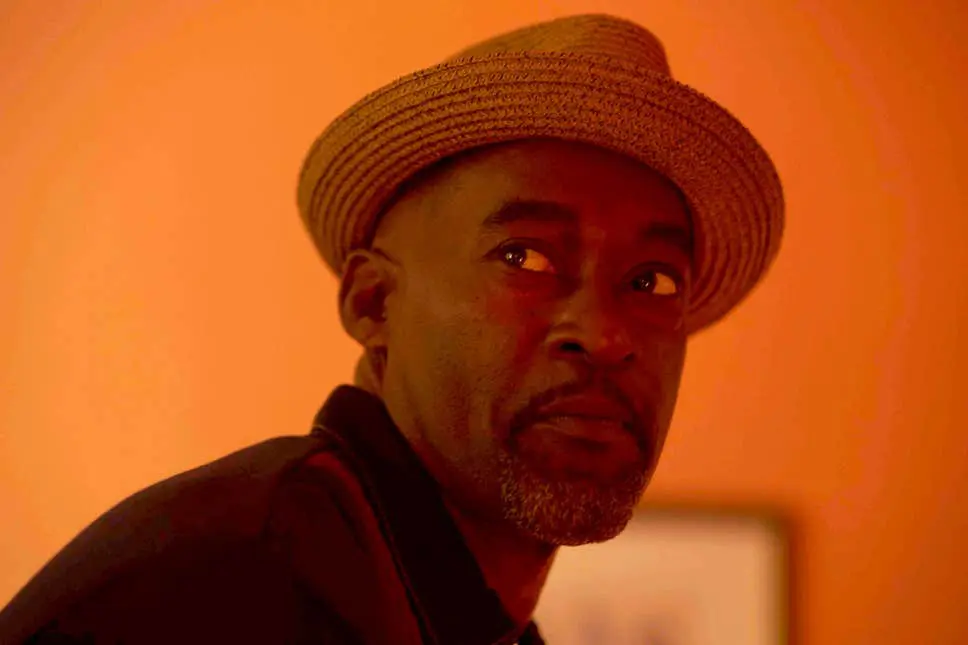Summary
There is no better time for this searing, vital dramatization of Anthony Bryan’s mistreatment during the Windrush scandal.
This review of Sitting in Limbo (BBC One) contains some spoilers for anyone who doesn’t know the history of the real-life case in question — although you should.
There’s no better time than right now, when Black Lives Matter is at the forefront of international news and the cultural consciousness, for a film that efficiently and effectively articulates just how little the British government cares about Black lives. Well, if we’re being specific, how little it cares about the Black lives turned upside-down by the shameful Windrush scandal, but you can probably assume the sentiment isn’t reserved exclusively for that specific portion of uncomfortable political history.
Sitting in Limbo, then, which aired on BBC One, concerns the real-life story of Anthony Bryan, a Jamaican-born immigrant who had come to Britain at the age of eight with his mother, an NHS nurse at the government’s express invitation, and who was subsequently told after more than five decades in the country that he was there illegally. He innocently applies for a passport, and just like that, he’s told he can no longer work, is held at a detention center, and is eventually told he’s going to be deported back to Jamaica – a country that, if he was allowed to return to visit his elderly mother, which is why he applied for a passport in the first place, he would be seeing for the first time since the mid-‘60s.

Nobody outside of Anthony’s family – his partner Janet (Nadine Marshall) and his “alleged” children, whose parentage has to be confirmed as part of the nebulous evidence-gathering process – cares what’s happening to Anthony. Everyone he has to speak to is disinterested at best and actively hostile at worst. Nobody looks twice at the photographs of his childhood in England. There’s no urgency to his case, which he mistakenly believes is unique, but that was only one of many. Patrick Robinson, who plays Anthony, hits the right notes of incredulous disbelief, anger, and increasing exhaustion as he is relentlessly stonewalled by emotionless bureaucratic nonsense that denies him a right to work, a right to healthcare, and a right to live, all at once.
Any right-minded viewer will feel rage on Anthony’s behalf that he only rarely expresses throughout Sitting in Limbo, which instead creates a strong, warm family unit and then intentionally shows various public figures – police, immigration officials, detention center supervisors, crucially not all of them white – consistently and coldly dehumanizing that unit. That’s what’s so powerful about the film’s script, penned by Anthony’s own brother, Stephen S Thompson – it shows how Caribbean families who were invited to Britain in the post-war decades and solidified as citizens by the 1971 Immigration Act were, without warning, treated as less than human on the vague notion that they had, as Theresa May puts it during a clip at the beginning of the film, “no right to be here.” The implication is that to be non-British is to be, essentially, non-human.
There’s no wonder that press coverage proved to be the defining factor of Anthony being allowed to stay in the country, much more so than due process or legal wizardry, both of which failed him and many like him consistently. He became in many ways symbolic of Britain’s sordid history of exploitation, systemic racism, and inexcusable violations of basic human rights and decency, and so he should have. Anthony Bryan was allowed to stay in Britain, in his home. What you have to wonder is why he’d want to after how he was treated.




